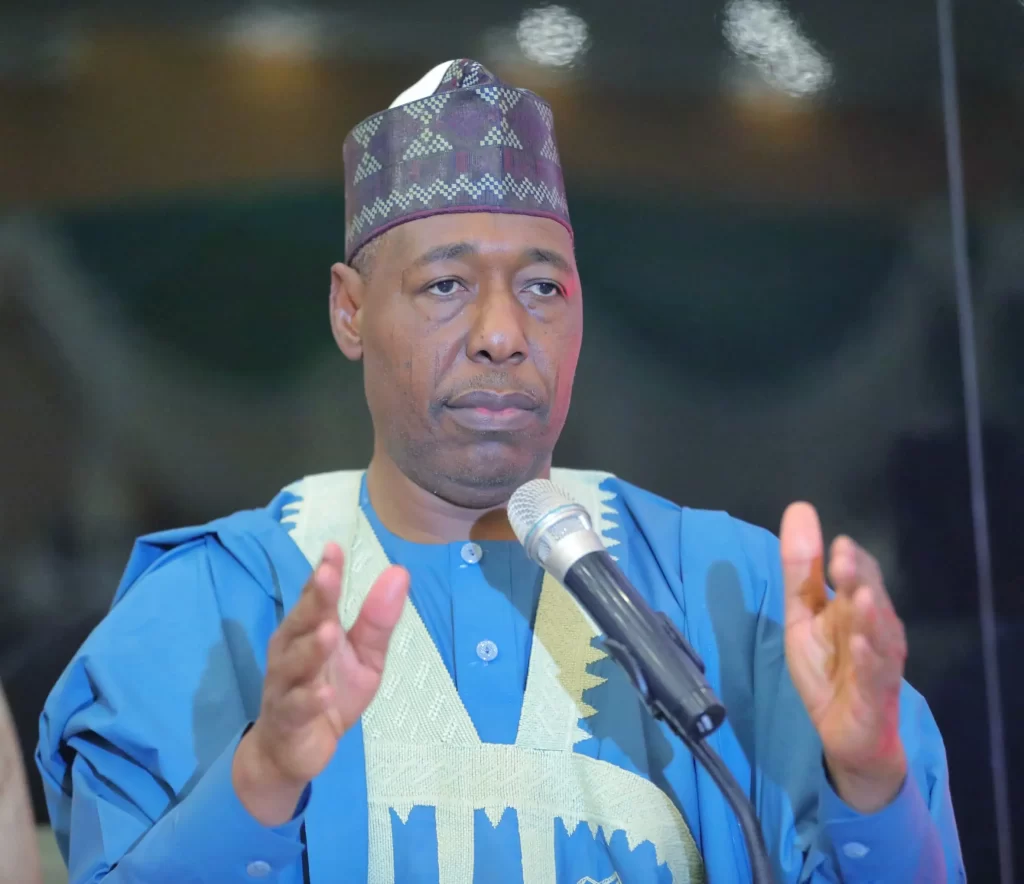Governor Babagana Zulum of Borno State has revealed that over 300,000 repentant Boko Haram insurgents and their families have surrendered to the state government within the last four years.
Speaking during a televised interview on News Central, the governor described the mass surrender as a major milestone in the state’s counterinsurgency efforts, attributing the development to a blend of military operations and non-kinetic strategies, including dialogue and reintegration programmes.
“Since the last three to four years, we have received nothing fewer than 300,000 repentant Boko Haram members and their families,” Zulum said. “That is a very huge success.”
The governor noted that the state’s collaboration with the Nigerian Army has significantly contributed to the improved security situation in Borno, despite sporadic attacks still recorded in parts of the state.
“Our non-kinetic measures have really yielded positive results because we have received tremendous support from the Nigerian Army,” he stated.
Zulum’s comments come weeks after he openly accused some politicians and soldiers of colluding with terrorists — a controversial claim that sparked nationwide debate.
In a May 21 interview, he had alleged that some Nigerian soldiers and political figures acted as informants and enablers for Boko Haram.
Despite his earlier stance, the governor on Thursday appeared to downplay any existing friction with the military, noting that the state government now enjoys a “cordial relationship” with security forces.
“Hitherto, we used to have some problems, but it has been a long time since we maintained a good relationship. Because of this, a lot has been achieved,” Zulum said.
However, public reaction to the governor’s celebration of the rehabilitation programme has been mixed. On social media platform X (formerly Twitter), many Nigerians expressed outrage over what they described as misplaced government priorities and leniency towards terrorists.
A user, @justkency, wrote: “People are amazed to hear the word ‘Repentant Boko Haram’ vis-à-vis their crimes… We are still yet to know who their sponsors are.”
Another user, @Nuel, commented, “The fact that we believe they have repented is the reason why we are still facing severe insecurity problems.”
@ToheebAlim criticised the policy, saying, “Yet their victims that manage to overpower them are being thrown to jail for defending themselves… They don’t deserve to be in our society.”
Since the launch of the mass surrender and de-radicalisation programme in 2021, Borno State has been at the centre of national and international scrutiny over the ethics and effectiveness of reintegrating former insurgents into civilian communities.
While authorities maintain the approach is key to ending the over a decade-long insurgency, critics argue that the programme emboldens militants and undermines justice for victims of terrorism.
Do you want to share a story with us? Do you want to advertise with us? Do you need publicity for a product, service, or event? Contact us on WhatsApp +2348183319097 Email: platformtimes@gmail.com
We are committed to impactful investigative journalism for human interest and social justice. Your donation will help us tell more stories. Kindly donate any amount HERE




